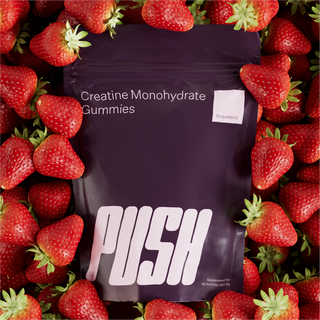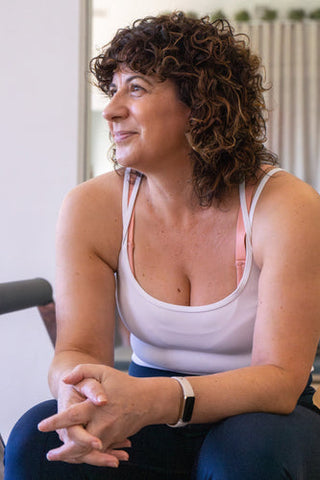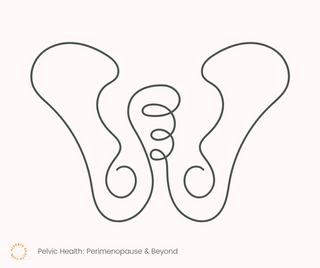Now that the New Year is over and the holidays have well and truly passed, getting back into your daily routine can feel like a bit of a rollercoaster... The kids are back at school, yourself and others are back to work (or perhaps never left), and suddenly lunches need making and the deadlines have already piled up.
Pause. Breathe in. Breathe out.
Without tools to manage all this pent-up stress and energy, we can become overwhelmed and burnt out, which is the last way we want to start a brand-new year. Another year should bring feelings of excitement and opportunity! That’s why we’ve compiled a list of Aleenta Club’s favourite ways to practice self-care, directly from the instructors and team you know and love.
1. Pilates and lattes!
To no one’s surprise, many of us choose exercise as our self-care! Not only is this a great choice for your physical health, but exercise is proven to improve mental health too! Aerobic exercise reduces levels of stress hormones, such as adrenaline and cortisol, whilst stimulating the production of endorphins, the body's natural painkillers and mood elevators (i). Reformer instructor Rita first turned to Pilates for self-care from nursing, but also does indoor cycling and walks on the beach. Additionally, Rita enjoys:
“Café hopping (is that a thing?), trying out different places for brunch and coffee…”


We couldn’t agree more; when it comes to self-care, a good meal and/or coffee never fails to have you feelin’ good, especially if someone else is cooking it. If it wasn’t a thing before, café hopping is about to be!
2. Daily bath – and bring on the bubbles!

Instructor and community manager extraordinaire Carley loves to take a bath every day for her self-care. A hot bath is great for relaxing tight muscles after class: adding magnesium (Epsom) salts can make this even more effective, a practice that barre/pilates instructor Abbey also uses. Additionally, Abbey enjoys setting the atmosphere with some candles and soothing tunes.


I – Aleenta Club writer, Sascha – love to add some bubbles to my bath, and not just in the water! A glass of wine or bubbly whilst soaking in the tub is just the treat after a long, hard day. Did you know wine has some incredible health benefits? You can read all about them here.
3. Unplug
“My self-care is spending time in nature; hiking, beach, turning my phone off…” – Kirsty, instructor and soon-to-be naturopath
In the 21st century, technology undoubtedly contributes to our stress. It can be hard to get off your phone when it feels like your whole life is on it. I know I personally am constantly checking my emails 100 times a day… anyone else? If this is you too, don’t beat yourself up; with their carefully curated algorithms, apps are designed to be addictive. Did you also know that the blue light emitted from screens can negatively affect our sleep patterns, work engagement, and task performance? (ii)

If the abundance of technology is becoming overwhelming, try setting aside some time to unplug. For Kirsty, this means getting out into nature, which can be a wonderful source of healing and nourishment for many, and unlike some other favs on this list, costs nothing. However, this may look like switching off your electronics and spending time with loved ones or focusing on a hobby like crochet instead (my favourite!).
4. Treat yourself – self-care does not have to equal perfect health.
For some people, self-care looks like the picture of perfect health. Don’t let this mislead you: life is all about balance, and we have always strongly believed in that sentiment here at Aleenta Health Club. In addition to nature immersion, Kirsty also loves a good Netflix binge (don’t we all!). And I will interject once again to say as much as I enjoy cooking and eating healthy, sometimes my self-care looks like that tub of ice cream or a pack of oreos. As someone who struggles greatly with their mental health, a subject I have opened up about previously on the Aleenta Club blog, sometimes that is the best self-care you can do. On days when getting out of bed seems impossible, if the only thing that will help you feel better is ‘junk’ food… eat the damn ice cream!

5. Do absolutely nothing.
Yep, you read that right. Instructor and social media manager, Erin, loves to practice her self-care by doing nothing at all!
“It can be hard to get there or over the anxiety hurdle about not being productive but once I’m there it is so peaceful. Can look like lying in bed or on the beach or just pottering around the garden, but it’s without an intention to do anything, just to be there.”

Sometimes we fail to let our brains have a complete rest. Your body is restored during sleep, but your brain remains highly active, so without some time to take care of your mind, burnout can creep up on you pretty quickly. Whether you’re like Erin and take the time to be as unproductive as possible (because you are worth so much more than your productivity folks!) or practice some mindfulness and meditation, sometimes doing nothing is the best thing to do.
6. Build a lifestyle you don’t need to escape from.
We left this one for last because Jenny brings an awesome perspective to practicing self-care that looks at the long-term, as well as the root of our need for self-care in the first place. If we think about why we need self-care, it is often to decompress from stressors in our lives such as work, family, finances and more. If we can reduce these, our need for the more traditional forms of self-care decreases. Our expert Yogi, Jenny, shared this fantastic quote with us to fully encapsulate the idea:
“True self-care is not salt baths and chocolate cake, it is making the choice to build a life that you don’t need to regularly escape from… and often that takes doing the thing you least want to do.” – Unknown
Now, in a perfect world this would be true, however, we can’t all just quit the jobs or ditch the people that may be causing us stress. Jenny implements this idea into her life in a far more realistic way by making the hard tasks her self-care, such as ticking things off her to-do list and setting boundaries (something she admits is still a work in progress). By addressing the stressor at its source, you can reduce any anxiety it could have caused. You may even no longer need that bubble bath (but you should definitely still do that)!
Of course, Jenny still has unavoidable triggers like the rest of us, and for those situations she too enjoys moving in nature and practicing mindfulness.

These are just a few ways we at Aleenta Health Club choose to practice self-care. The most important thing to consider is that self-care is unique to each individual; you should find what works best for you. Furthermore, nobody is perfect. If you struggle with self-care, you are certainly not alone. Many of us at Aleenta Health Club are mothers, caretakers, workers, teachers, all who put others well-being before their own. It can take time to learn how to listen to your body, figure out what you need and get it right… especially since we are ever-changing!
Just remember: pause. Breathe in. Breathe out.
You got this!
Works Cited
(i) The President and Fellows of Harvard College. Exercising to relax. 7 July 2020. 31 January 2022. <https://www.health.harvard.edu/staying-healthy/exercising-to-relax>.
(ii) Guarana, Cristiano L, Christopher M Barnes and Wei Jee Ong. "The effects of blue-light filtration on sleep and work outcomes." The Journal of applied psychology 106.5 (2021): 784-796.







